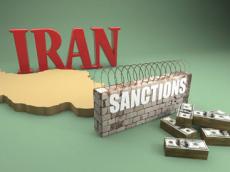Today.Az » World news » Nuclear talks not to get under considerable impact of new sanctions,expert says
06 March 2013 [11:27] - Today.Az
 The possible new sanctions on Iran not going to have an immediate impact, Senior fellow at Nanyang Technological University's S. Rajaratnam School of International Studies, James M. Dorsey told.
The possible new sanctions on Iran not going to have an immediate impact, Senior fellow at Nanyang Technological University's S. Rajaratnam School of International Studies, James M. Dorsey told.
The expert was commenting on the possibility of new sanctions on Iran from the U.S. side taking place.
U.S. lawmakers will introduce a bill on Wednesday that expands economic penalties against Iran and is designed to force countries like China to buy less Iranian crude oil, according to a copy of the legislation obtained by Reuters on Tuesday.
The bill is the latest attempt by members of the U.S. Congress to stop the Iranian government from enriching uranium to a level that could be used in weapons. It comes as Iran and six major powers meet in Almaty, Kazakhstan, to discuss Tehran's nuclear program.
The legislation by House Foreign Affairs Committee Chairman Republican Ed Royce of California and the panel's top Democrat Eliot Engel of New York builds on existing U.S. sanctions that have so far led to the devaluation of Iran's currency and slashed the country's main source of funding - oil revenues.
The bill would give U.S. President Barack Obama additional authorities to impose financial penalties on foreign companies and entities that provide Iran with goods that are critical to its economy.
Under the legislation, pressure would be applied on European authorities to stop the Iranian government from using the European Central Bank's payment system to circumvent U.S. and European sanctions.
Speaking of the nuclear negotiations that Iran has recently been conducting, Dorsey believes the sanctions, if imposed, will not have a strong impact.
"It may not significantly affect the talks but it certainly does not make them easier as it reinforces rather than reduces perceptions and prejudices," Dorsey stated.
He added that from an Iranian perspective, adding sanctions during talks hardly inspires confidence.
"Having said this, it is obvious that the Congressional move has less to do with Iran and more with domestic political posturing, a problem that has dogged talks with Iran throughout."
The U.S. and its Western allies suspect Iran of developing a nuclear weapon - something that Iran denies.
The Islamic Republic has on numerous occasions stated that it does not seek to develop nuclear weapons, using nuclear energy for medical researches instead.
Despite the rules enshrined in the Non-Proliferation Treaty (NPT) entitling every member state, including Iran, to the right of uranium enrichment, Tehran is now under four rounds of UN Security Council sanctions for turning down West's calls to give up its right of uranium enrichment.
/Trend/
|
|